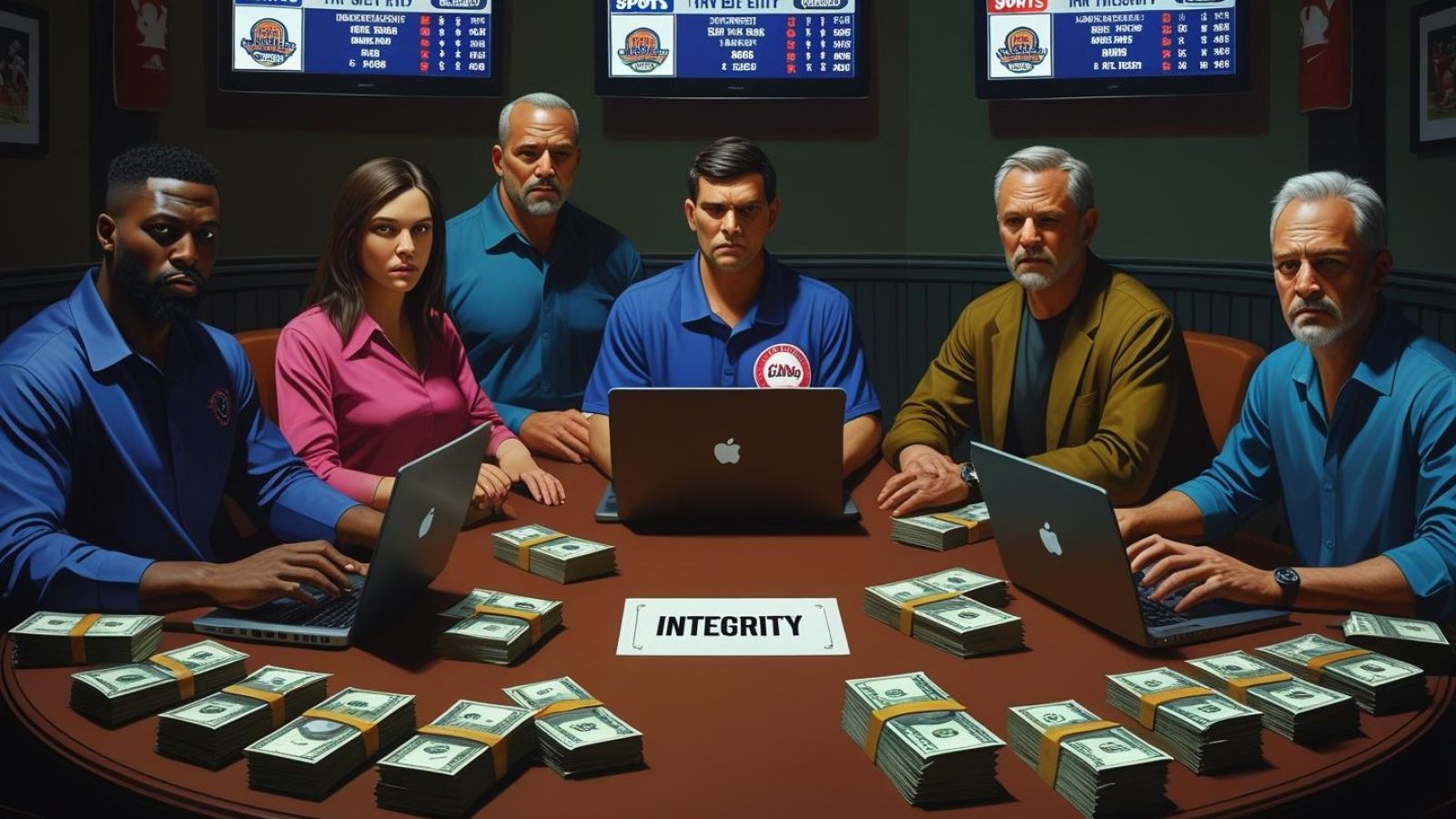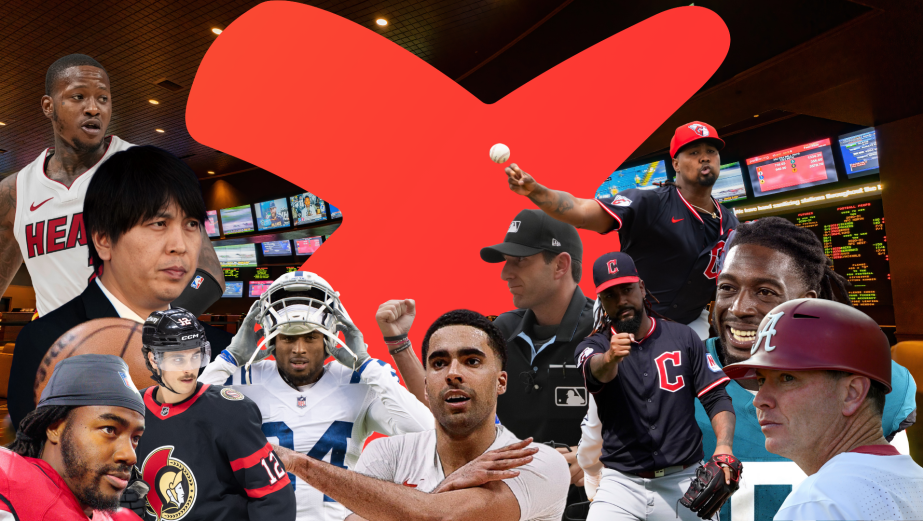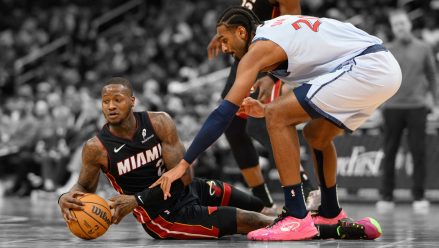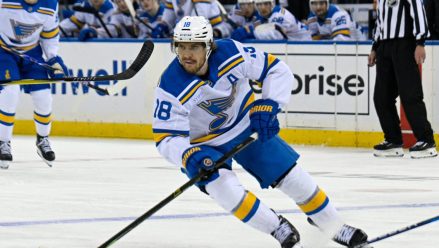The timeline of the Luis L. Ortiz and Emmanuel Clase sports-betting-related suspensions last month suggest to Matthew Wein that Major League Baseball (MLB) might not have properly game-planned for this damaging aspect of a gambling-saturated sports environment.
Within a few weeks in July, both Cleveland Guardians pitchers were placed on non-disciplinary paid leave through Aug. 31. MLB acknowledged the suspensions were tied to a sports betting investigation that is believed to involve the manipulation of outcomes on first-pitch prop bets.
The Guardians claimed they’ve been informed that no more of their players were impacted. But a team chasing an American League wild card spot has lost two bullpen pieces including Clase, an All-Star who led the league in saves from 2022-24. Meanwhile, a fan base was left wondering if members of its team were trying to win games for them or prop bets for profit.
This because of a dearth of information that hacks at the public trust, Wein said. And maybe the dearth of a plan specifically targeting sports betting integrity.
“They emptied Clase’s locker and didn’t say anything publicly about it. Ortiz has now been on administrative leave for over a month and they haven’t really said anything since he initially went on administrative leave about the case,” Wein told InGame. “We don’t know if the manager knows when they’re coming back. The fans have no idea what’s going on.”
Professional sports leagues may not be able to anticipate when such a calamity is coming, but they can prepare for the eventuality. Including keeping the public, which includes fans and bettors, informed.
Tabletop exercises for integrity
A former Homeland Security employee and congressional staffer, Wein is now a consultant specializing in national security and cybersecurity, but his Secure Stakes Substack publication increasingly probes the vulnerabilities where sports, fandom, and sports betting overlap. In a recent newsletter, Wein detailed how professional sports leagues could benefit from the same type of “tabletop exercises” that help government agencies game plan reactions and contingencies for large multi-jurisdictional events like Super Bowls or the Olympics. In these in-person or via-video drills, leagues, policing authorities, and local agencies devise playbooks for unsavory incidents or the mundane.
By war-gaming scenarios, each participant can prepare responses in conjunction with all involved, in theory honing reaction and smoothing damage control if the events occur, or perhaps, preventing them altogether.
“It’s great that organizations do these, in the Olympics, for example,” Wein said. “It’s great for the FBI (Federal Bureau of Investigation) and LAPD (Los Angeles Police Department) and all the different police departments and fire departments around the L.A. area to get together, maybe with some of the stadium operators and maybe some of the private security companies, and everyone gets on the same page.”
How MLB could game plan
A tabletop exercise that might have benefited MLB in the Guardians scandal, Wein said, would have consisted of each team individually or all 32 at once, the integrity monitor, MLB’s legal counsel, public affairs and security leads, Major League Baseball Players Association [MLBPA], and sportsbook operator representatives coming together. It was integrity monitor IC360 that flagged the suspicious Ortiz and Clase activity.
“You go around the table, you go through the scenario,” Wein said. He says this information becomes available: “There are initial indicators of malfeasance that are picked up by the integrity monitor.” And then the conversation begins: “Who do they share the information with? And then once that information is shared, what do they do with it? At what point do the lawyers approach the players? If it’s a crime, do they tell federal investigators about it? At what point does public affairs get involved to notify the public, whether it’s directly or to a reporter?
“For the union, what are they going to do in terms of protecting a union member? Those sorts of things all need to be, I think, taken into account.”
From there, Wein said, the stakeholders must determine how to ensure the incident doesn’t reoccur, and determine how it affects the team involved.
If the incident occurred mid-season, the league must find a way to guarantee fair play, and importantly, the impression of fair play to the public. The NBA’s gambling scandals, including the lifetime banishment of Jontay Porter, largely have been dealt with in the offseason, allowing for a methodical reaction. MLB’s crisis came in the heart of the season.
The Guardians case indicates some coordination in that MLB noted both the Ortiz and Clase suspensions came “per an agreement” with the MLBPA. But Wein says more could be done.
“It seems to me like they are really missing a component of dealing with this issue,” Wein noted. “So, if there’s evidence, put it out so the fans know what’s going on. Because if you’re a fan, I feel like a lot of this misses the aspect that these sports teams are in large part a civic enterprise with their fans, especially the fans in the geographic [region where] it’s located.
“And you invest a certain amount of energy into these teams and when you just sort of leave these investigations out there in the middle of the season, there are big gaps in knowledge and understanding that just breed questions that aren’t necessarily helpful to dealing with the situation.”
InGame asked MLB, the National Basketball Association, National Hockey League, and National Football League for information on their pre-crisis strategies. None of the leagues replied. A gambling industry source told InGame that leagues have in recent years discontinued “window dressing” preparedness exercises.
Public trust a crucial by-product
Wein, who’s had conversations about possible consulting work with a few “integrity-adjacent” firms, sportsbook operators, and universities, said that while pro sports leagues including MLB conduct tabletop exercises for other potential problems, he’s unsure if the practice has expanded to integrity breaches.
Tabletop exercises don’t always need to start with a problem, he said, but they must result in a blueprint.
“In the case of the Major League Baseball scandal,” he added, “you have a plan on your shelf so that the next time the integrity monitor calls you and says, ‘We’ve noticed some suspicious activity from one of your players,’ you pull the plan off the shelf and you open it up and you say, ‘OK, this is what I’m expecting legal and public affairs and the integrity monitor and individual teams and the players union to do because we’ve gone through the scenario.’”
Scenarios often lead to more questions — which is productive — but need to always lead to more trust, Wein said. Trust among the participants in the exercise, and trust established with the general public, be it their level of comfort attending a crowded, high-profile sporting event, or believing that the sports teams in which they invest so much time and money are not cheating.
“It leads to more trust within and across organizations because you have seen the people who you’re going to be with when there is an incident, you know the people who you are going to be going through the incident with, and you understand their point of view and what they’re going to be doing,” he said.






